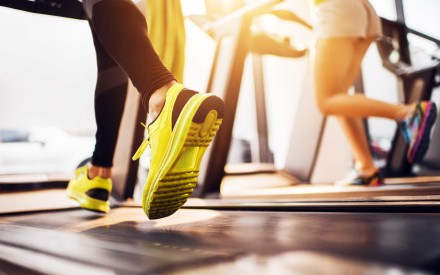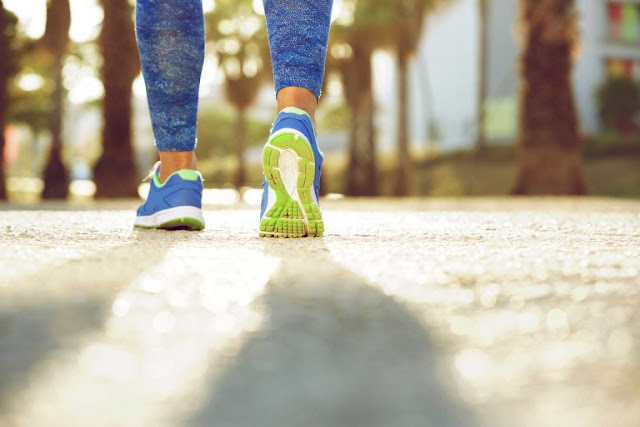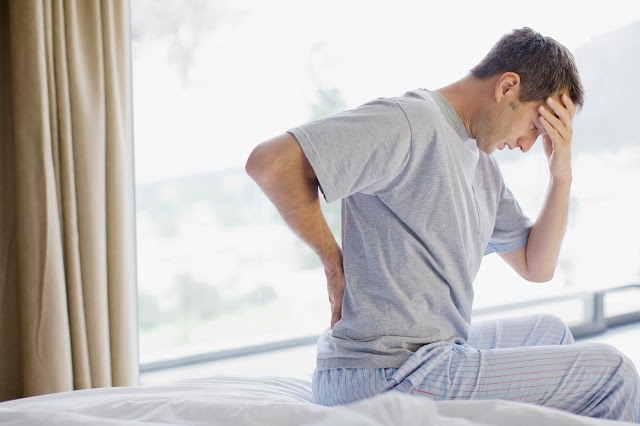You'll have more energy
The cells throughout your body need water to function, which is why we can all use tips on getting more water into your diet. "Water is a basic need for cellular health," says Ronald Navarro, MD, orthopedic and sport medicine surgeon at Kaiser Permanente South Bay Medical Center in Harbor City, California. "Cells contain water and are surrounded by water. In dehydration, cell membranes become less permeable, hampering the flow of hormones and nutrients into the cell and preventing waste products that cause cell damage from flowing out." When that's happening throughout your body, your energy is sapped, and fatigue can take over, according to a review of hydration research published in the journal Nutrition Review.
How much water do you need to boost energy? Depending on who you ask, the exact amount varies. Dr. Navarro points to the most agreed-upon recommendation of six to eight 8-ounce glasses of water daily. This could change though, depending on the climate you live in and the type of lifestyle you lead. "Some adults may need more or less, depending on their overall health, including if they have certain illnesses, take specific medications and more. It also depends on how much they exercise and the level of intensity, and how hot and dry the weather is," he explains. If you're interested to know how much water your body is hankering for, talk to your primary care doctor.
Your memory will improve
Your brain is hugely dependent on fluid to work properly. All those synapses and neurons need liquid to fire properly. According to research published in the European Journal of Clinical Nutrition, one of the most reliable predictors of decline in memory and mental performance is dehydration. And yet, according to Dr. Navarro, some polls estimate that upwards of 75 percent of Americans suffer from chronic dehydration. And that number worsens in summer: "We see the rate of dehydration increase in the summer and fall when temperatures are higher and perspiration is more pronounced," he says. If you're concerned you're among the dehydrated masses, here are the signs of dehydration.
Your focus will increase
Ever feel like you have no control over your attention span? Your mind just wanders no matter how hard you try to focus on the task at hand? Drink a big glass of water and watch what happens: According to research published in the journal Nutrients, mild dehydration interferes with brain processing and breaks down the ability to focus. Just like sleep, maintaining a healthy diet, making time to sweat it out in your favorite workout class or log miles on your nearby running path, water is one of the most essential needs of your body. In fact, since we're made up of so much water, it makes sense why we would constantly need it to replenish, cleanse and feed our system.
You'll be stronger and faster
Ever feel sore during a workout, even though you didn't exercise the day before? You can check out these home remedies for sore muscles, but you should also know that those aches and pains or the difficulty you experience when trying to lift a heavier weight or push through that extra mile can be due to dehydration, and not your lack of strength. Research suggests that even a 2 percent drop in hydration can cause significant losses in strength and motivation while increasing feelings of fatigue. Dr. Navarro says that when we take in the right amount of water for our bodies, our muscles become more relaxed, which increases energy and maximizes our performance.
Your skin is more radiant
Ever go for a spa treatment—like a massage or facial—and your therapist makes a point to remind you to drink some water instead of the champagne you're eyeing? That's because skin can benefit greatly from hydration and for some, clear up your skin or make it look younger. (If you're looking for more ways to beautify your skin, try these tips.) "Our skin, the largest organ in our body, relies on water to produce new cells and give us that glow. Our skin also needs water do its job of regulating the body's temperature," Dr. Navarro says. No question: According to research, our skin contains 30 percent water which adds to plumpness and elasticity—vibrancy, in other words.
You'll run cooler
"When we exercise, our bodies cool off by sweating," says Dr. Navarro. "As we perspire, we lose necessary body fluids. If we do not replace these fluids, we become dehydrated. This makes it difficult to sweat and cool down, which can result in a heat injury," he explains. In hot weather, it's important you know the signs of heat stroke. If you're looking for easy ways to stay hydrated during exercise, check out this trendy solution from SMITH + STARR. Co-founders Chelsea Alexander and Fallyn Smith, were inspired to create a bag that offers a hydration solution, so they wouldn't have to lug around a water bottle while commuting in their home city, San Francisco, or while going hiking or camping. Their bag, The Conway, is the first ever cross-body handbag that doubles as a hydration pack. It looks like a bag you'd take while running errands or while out with your friends, but it contains a removable water pouch that holds 17 ounces and a tube for easy hydration right from the shoulder strap.



















